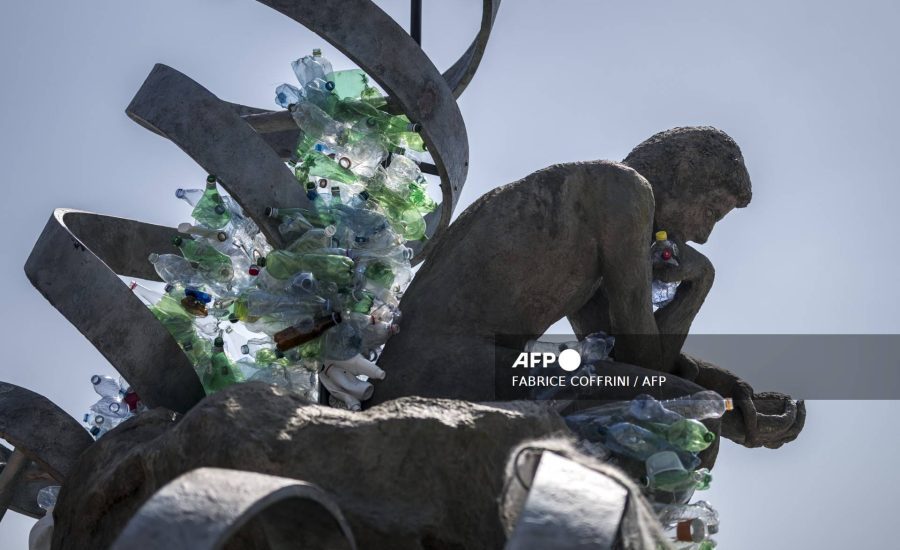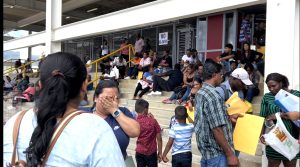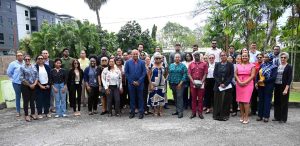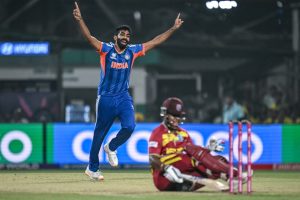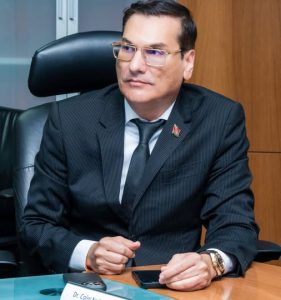GENEVA – Negotiators trying to secure a global agreement on tackling the scourge of plastic pollution had just hours left to salvage a deal on Thursday after the talks plunged into disarray.
Countries wanting bold action to turn the tide on plastic garbage are so far apart from a group of oil-producing nations that the prospects of finding meaningful common ground before Friday — after three years of talks — seem low.
With just over a day to go, talks chair Luis Vayas Valdivieso produced a draft text on Wednesday based on the few areas of convergence, in an attempt to find common ground.
But the draft succeeded only in infuriating virtually all corners, and the text was immediately shredded as one country after another ripped it to bits.
For the self-styled “ambition coalition” countries, it was an empty document shorn of bold action like curbing production and phasing out toxic ingredients and reduced down to a waste management accord.
And for the so-called Like-Minded Group, with Gulf states leading the charge, it crossed too many of their red lines and did not do enough to narrow down the scope of what they might be signing up for.
The bad, the very bad, the ugly
Vayas held talks with regional delegations late Wednesday that ran past midnight.
Raking over the fall-out, European Union member states held a coordination meeting early Thursday, as did a group of small island developing states struggling to cope with ocean plastic but they did little to produce and have scant capacity to deal with.
Latin American and Caribbean nations and the African group of countries were also due to have their own meetings behind closed doors.
After that, the two key cross-regional blocs — the High Ambition Coalition and the Like-Minded Group — were to have their own meetings before marching back into the plenary session, which brings all the negotiating countries together in the UN Palais des Nations’ main assembly hall.
Aleksandar Rankovic from The Common Initiative think-tank, said Vayas had effectively removed all the ambitious countries’ bargaining chips, meaning they are unlikely to get anything better than what is on the table.
“It’s very simple: there are only two scenarios: there’s bad and very bad — and a lot of ugliness in between,” he told AFP.
“The bad scenario is that countries adopt a very bad treaty: something that looks like the text from Wednesday, but potentially worse.
“The very bad is that they don’t agree on anything, and they either try to reconvene,” or the treaty is “kept in limbo for a long time — so practically abandoned”.
‘Repulsive surrender’
After three years and five previous rounds of talks, negotiators from 180-odd countries have been working at the United Nations in Geneva since August 5 to try to conclude a first international accord on dealing with plastic pollution.
The problem is so ubiquitous that microplastics have been found on the highest mountain peaks, in the deepest ocean trench and scattered throughout almost every part of the human body.
In Wednesday’s bombshell plenary, Panama said the draft text was “simply repulsive. It is not ambition: it is surrender”, while Kenya said it had been “significantly diluted and lost its very objective”.
The World Wide Fund for Nature said ambitious countries “must have by now recognised that there is no possible text that will be acceptable to all UN member states”.
Their ministers have the chance to table a new text with binding global bans and phase-outs for the most harmful chemicals, and a mechanism to ensure the treaty can be strengthened over time, Zaynab Sadan, WWF’s global plastics policy lead told AFP.
“They must then be prepared to vote their text through. There is no other way a meaningful treaty can be agreed,” she said.
![]()


